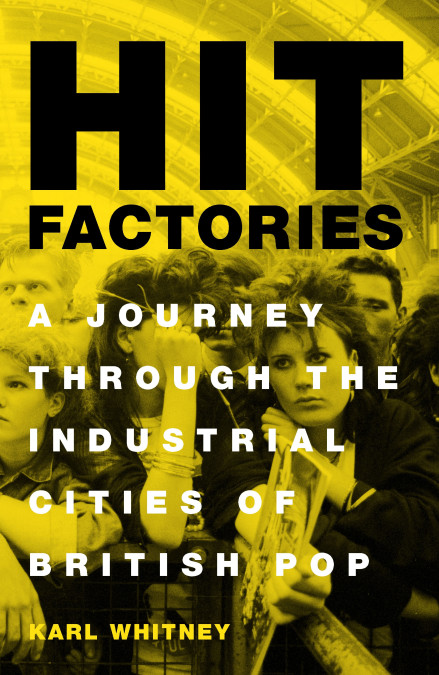Interview with Karl Whitney – Writer of Hit Factories – Part 2
The book seems to be informed by music from the eighties and nineties, would that be fair? Is music as important for you these days?
I think broadly the book’s chronology goes from the 1950s to the 1990s, so it’s quite broad, but I wanted to limit the scope of the book so that it’s not unmanageable. Then again, the choices are fairly subjective or dictated by the ‘sound’ I want to cover. I don’t write much about Richard Hawley or The Arctic Monkeys in the Sheffield chapter, simply because I wanted to concentrate on synth-pop and electronica. As it happened, Jarvis Cocker and Pulp form part of that story, so they fitted well.
Some places have a continuum that lasts years of the same people who play different roles at different stages, while other places have short-lived scenes or bands that don’t necessarily fit together as coherently, so there was a challenge there in how to make that work.
I still love music, and still buy physical records, both vinyl and CD, while also listening to music on Spotify. I often stream new stuff, and if I really like it I’ll buy a copy. Recently I’ve bought The Good, The Bad and The Queen’s Merrie Land, Robyn’s Honey and piles of CDs including a 4-disc synthpop box set.
Do you think a book like this could be done, looking purely at the 21st century?
I think it could be done, but might take a different approach as while there are still local scenes that thrive, the internet plays a much bigger part in connecting people. What I would be interested in that is looking at the motivations of people – what compels them to do what they do – and the economics of it. How do they make money? Do they have a day job, and if so how do they juggle its demands with the time and space necessary to make music. It would provide another angle on wider contemporary issues: housing, work, precarity.
How is it being an author in this day and age?
Since we’re speaking of precarity… The truth is that it’s difficult being an author. You have to live on very little, you have to juggle your finances, you have to put in many unpaid hours on your own work in order for it to be anyway decent. With non-fiction there are a lot of costs involved in terms of travel, etc, so you’re keeping an eye on that all the time too. Physically writing a book takes time – you’re sitting down and doing nothing else for months on end. And that begins to eat into what little money you have. With both books I’ve had grants from the UK Society of Authors (and others for the first book, including the Irish Arts Council), which were central to getting them written.
There are certain points where you ask yourself why you’re doing it. Ultimately I do it because I love it, because I get satisfaction from it, and I just keep going because the highs outweigh the lows.
What are your hopes for the book?
With this one I just want it to reach as many people who are interested as possible. The early signs have been good, but I’m not putting my feet up. I’m in salesman mode at the moment. The first book was translated into Polish. I’d like this one to find a readership in other countries too – France, Germany, America – anywhere there’s an interest in British music. And obviously, TV adaptation, Mamma Mia-style jukebox musical and fame and fortune would be good.
What’s next for Karl Whitney?
While writing Hit Factories I was keen to come up with some ideas that might work for a third book, so I have a couple of copybooks filled with ideas. One thing in particular was a nineteenth century murder case that interested me. Just after Christmas I spent a few days up in Scottish archives digging through trial documents. So that might be the beginning of something new. I’ll see where it leads me.

